98 have author last names that start with P have author last names that start with P

The Czechs struggled to define their national identity throughout the modern era. Prague, the capital of a diverse area comprising Czechs, Slovaks, Germans, Poles, Ruthenians, and Romany as well as various religious groups including Catholics, Protestants, and Jews, became central to the Czech domination of the region and its identity. These struggles have often played out in violent acts, such as the destruction of religious monuments, or the forced segregation and near extermination of Jews.
During the twentieth century, Prague grew increasingly secular, yet leaders continued to look to religious figures such as Jan Hus and Saint Wenceslas as symbols of Czech heritage. Hus, in particular, became a paladin in the struggle for Czech independence from the Habsburg Empire and Austrian Catholicism.
Through her extensive archival research and personal fieldwork, Cynthia Paces offers a panoramic view of Prague as the cradle of Czech national identity, seen through a vast array of memory sites and objects. From the Gothic Saint Vitus Cathedral, to the Communist Party's reconstruction of Jan Hus's Bethlehem Chapel, to the 1969 self-immolation of student Jan Palach in protest of Soviet occupation, to the Hosková plaque commemorating the deportation of Jews from Josefov during the Holocaust, Paces reveals the iconography intrinsic to forming a collective memory and the meaning of being a Czech. As her study discerns, that meaning has yet to be clearly defined, and the search for identity continues today.
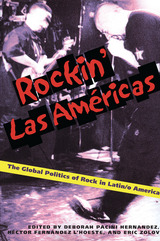
Every nation in the Americas—from indigenous Peru to revolutionary Cuba—has been touched by the cultural and musical impact of rock. Rockin’ Las Américas is the first book to explore the production, dissemination, and consumption of rock music throughout the Caribbean, Mexico, Central America, Brazil, the Andes, and the Southern Cone as well as among Latinos in the United States.
The contributors include experts in music, history, literature, culture, sociology, and anthropology, as well as practicing <I>rockeros</I> and <I>rockeras</I>. The multidisciplinary, transnational, and comparative perspectives they bring to the topic serve to address a broad range of fundamental questions about rock in Latin and Latino America, including: Why did rock become such a controversial cultural force in the region? In what ways has rock served as a medium for expressing national identities? How are unique questions of race, class, and gender inscribed in Latin American rock? What makes Latin American rock Latin American? <I>Rockin’ Las Américas</I> is an essential book for anyone who hopes to understand the complexities of Latin American culture today.
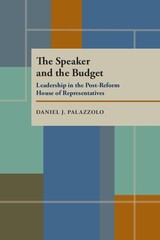
One of the most important changes in Congress in decades were the extensive congressional reforms of the 1970s, which moved the congressional budget process into the focus of congressional policy making and shifted decision making away from committees. This overwhelming attention to the federal budget allowed party leaders to emerge as central decision makers.
Palazzolo traces the changing nature of the Speaker of the House's role in the congressional budget process from the passage of the Budget and Impoundment Control Act of 1974, through the 100th Congress in 1988. As the deficit grew and budget politics became more partisan in the 1980s, the Speaker became more involved in policy-related functions, such as setting budget priorities and negotiating budget agreements with Senate leaders and the president. Consequently, the Speaker's role as leader of the institution was subordinated to his role as a party leader.


The mountains of southwestern Pennsylvania provide the setting for the most popular whitewater in America: the Youghiogheny River at Ohiopyle. People from all over the nation come to run the rapids, while others simply enjoy the natural beauty of Ohiopyle State Park. But this Appalachian river has many faces as it flows from its source among the scattered mountain farms of western Maryland to its confluence with the Monongahela in the industrial outskirts of Pittsburgh. Though always a home to people who cherish their mountain roots, the region’s river offers recreation for millions of Americans.
By canoe, raft, van, and on foot, Tim Palmer explores the river from its highest spring to its industrial end. He writes about the people - afternoon visitors and eigth-generation natives - and about their pasts and their hopes, about the shaping of the land, and the land’s inevitable shaping of them.
The author chronicles the rise of the five Ohiopyle rafting companies that host 80,000 visitors each year and then takes the reader on one of these outfitted voyages. Finally, Palmer paddles beyond the Appalachians to the river’s urban end near Pittsburgh. Strip mining, land development, and recreation management are examined with a consciousness that asks, What will happen to this remarkable but threatened place?

Turbulent rapids and wild shorelines of the Youghiogheny River highlight natural wonders of the Appalachian Mountains, and midway on the stream’s revealing path, Ohiopyle State Park is a showcase of beauty and has become a recreational hotspot where the river thunders over its iconic falls and cascades through the wooded gorges of Pennsylvania. With deep reflection, a compelling sense of adventure, and family ties to the waterway going back many generations, author Tim Palmer wrote Youghiogheny: Appalachian River in 1984 as the essential biography of this river and region. Now, in this fortieth anniversary revised and expanded edition of his classic narrative on this special landscape and its people, he revisits the river, addresses the changes that have occurred since the book was first published, and poses the question: What will happen to this historic and cherished place?
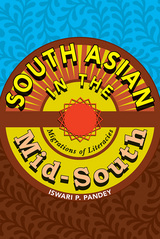
In an age of global anxiety and suspicion, South Asian immigrants juggle multiple cultural and literate traditions in Mid-South America. In this study Iswari P. Pandey looks deeply into this community to track the migration of literacies, showing how different meaning-making practices are adapted and reconfigured for cross-language relations and cross-cultural understanding at sites as varied as a Hindu school, a Hindu women’s reading group, Muslim men’s and women’s discussion groups formed soon after 9/11, and cross-cultural presentations by these immigrants to the host communities and law enforcement agencies. Through more than seventy interviews, he reveals the migratory nature of literacies and the community work required to make these practices meaningful.
Pandey addresses critical questions about language and cultural identity at a time of profound change. He examines how symbolic resources are invented and reinvented and circulated and recirculated within and across communities; the impact of English and new technologies on teaching, learning, and practicing ancestral languages; and how gender and religious identifications shape these practices. Overall, the book offers a thorough examination of the ways individuals use interpretive powers for agency within their own communities and for cross-cultural understanding in a globalizing world and what these practices mean for our understanding of that world.
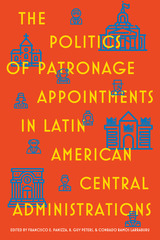
Although merit system selection and management of public personnel is thought of as the standard for good governance, public employees frequently are appointed by political officials rather than being members of a career civil service. In fact, there has been an increase in the level of patronage appointments and politicization of public administration over the past several decades as political leaders attempt to impose their control over the public bureaucracy. Although widespread, patronage appointments in the public sector are particularly important in Latin America, where there is a tradition of extensive patronage. The Politics of Patronage Appointments in Latin American Central Administrations seeks to understand the motivations of patrons when they make appointments, the roles appointees play, the skills required to play these roles, and what accounts for different modalities of patronage. It moves beyond the conventional condemnation of patronage to examine the multiple uses of political appointments, which can be crucial for obtaining the services of highly qualified individuals who otherwise might not be willing to work in the public sector.
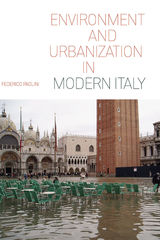

Old Age, New Science explores how a group of American and British life scientists contributed to gerontology’s development as a multidisciplinary field. It examines the foundational “biosocial visions” they shared, a byproduct of both their research and the social problems they encountered. Hyung Wook Park shows how these visions shaped popular discourses on aging, directly influenced the institutionalization of gerontology, and also reflected the class, gender, and race biases of their founders.
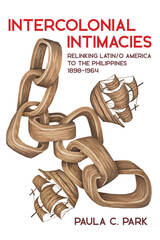
As a nation, the Philippines has a colonial history with both Spain and the United States. Its links to the Americas are longstanding and complex. Intercolonial Intimacies interrogates the legacy of the Spanish Empire and the cultural hegemony of the United States by analyzing the work of twentieth-century Filipino and Latin/o American writers and diplomats who often read one other and imagined themselves as kin. The relationships between the Philippines and the former colonies of the Spanish Empire in the Americas were strengthened throughout the twentieth century by the consolidation of a discourse of shared, even familiar, identity. This distinct inherited intercolonial bond was already disengaged from their former colonizer and further used to defy new forms of colonialism. By examining the parallels and points of contact between these Filipino and Latin American writers, Paula C. Park elaborates on the “intercolonial intimacies” that shape a transpacific understanding of coloniality and latinidad.
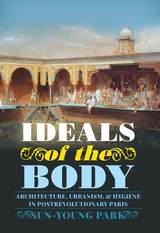

Richard Fenno first coined the term home style to describe the ways in which members of Congress cultivate the voters of their home constituencies. He suggested that incumbents were paying more attention to their constituents than they had in the past. In this book, Glenn Parker examines the relationship between activities at home and in Washington, asking specifically: Why and when did congressmen and senators begin to pay more attention to their constituents? And what are the institutional consequences of this change?
Using data drawn from the travel vouchers filed by incumbent senators and congressmen between 1959 and 1980, Parker shows that since the mid-1960s incumbents have been placing greater emphasis on service to their state or district. Congress has facilitated this change in various ways, such as by increasing travel allowances and by scheduling that minimizes the conflict between legislative business in Washington and time spent with constituents.
Parker's study includes both the Senate and House, and he draws distinctions between the home-style behaviors of senators and representatives. He also provides a historical context for understanding the dynamics of changes in home style. The time-series data generate explanations that specify relationships among historical conditions, individual behavior, and institutional structures.
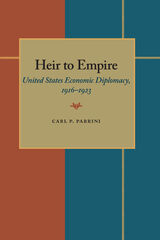

Logical empiricism, a program for the study of science that attempted to provide logical analyses of the nature of scientific concepts, the relation between evidence and theory, and the nature of scientific explanation, formed among the famed Vienna and Berlin Circles of the 1920s and '30s and dominated the philosophy of science throughout much of the twentieth century. In recent decades, a "post-positivist" philosophy, deriding empiricism and its claims in light of more recent historical and sociological discoveries, has been the ascendant mode of philosophy and other disciplines in the arts and sciences.
This book features original research that challenges such broad oppositions. In eleven essays, leading scholars from many nations construct a more nuanced understanding of logical empiricism, its history, and development, offering promising implications for current philosophy of science debates.
Tapping rich resources of unpublished material from archives in Haarlem, Konstanz, Pittsburgh, and Vienna, contributors conduct a deep investigation into the origins and development of the Vienna and Berlin Circles. They expose the roots of the philosophy in such varied sources as Cassirer, Poincaire, Husserl, Heidegger, and Wittgenstein. Important connections between the empiricists and other movements--neo-empiricism, British empiricism--are vigorously explored.
Building on these historical studies, a critical reevaluation emerges that shrinks the distance between old and new philosophers of science, between "analytic" and "Continental" philosophy. A number of compelling recent debates, including those involving Kuhn, Feyerabend, Hesse, Glymour, and Hanson, are reopened to show the ways in which logical empiricist theory can still be validly applied.
Logical Empiricism is the result of a remarkable conference, convened in the spirit of reflection and international cooperation, that took place in Florence, Italy, in 1999.

"In this original and wonderfully energetic book, Bradley Paul moves from humor to mockery to play to anger to grief, and sometimes all at once. This poetry shifts, it slams, it hammers, it thinks; it corrodes our sorrow and foolishness; it captures our national haplessness, sad and firing and still."
--Jean Valentine
"This is a book of 'Instructions,' a 'How To' book, a 'Guide' to the anarchic carnival of everyday life. It is a wicked book smelling of 'scrapple' and the 'puke of poetry.' And yet rising out of the bile is something else--call it a love for words and poetry--that can gleefully announce that 'a monkey could write this poem.' Read this book and you will lean 'how to stop your doppelganger from plagiarizing you,' which is exactly what you need to know to live in the twenty-first century." --John Yau
Bradley Paul’s work has appeared in American Poetry Review, Pleiades, Smartish Pace, Boston Review, and other journals. His first book of poetry, The Obvious, was selected by Brenda Hillman for the 2004 New Issues Poetry Prize. A native of Baltimore, he now lives in Los Angeles.
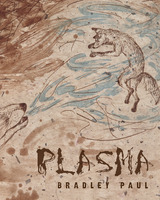

Paulino examines the campaign against Haiti as the construct of a fractured urban intellectual minority, bolstered by international politics and U.S. imperialism. This minority included a diverse set of individuals and institutions that employed anti-Haitian rhetoric for their own benefit (i.e., sugar manufacturers and border officials.) Yet, in reality, these same actors had no interest in establishing an impermeable border.
Paulino further demonstrates that Dominican attitudes of admiration and solidarity toward Haitians as well as extensive intermixture around the border region were commonplace. In sum his study argues against the notion that anti-Haitianism was part of a persistent and innate Dominican ethos.
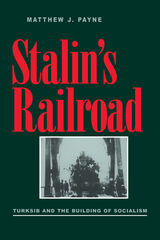
Built between December 1926 and January 1931 by nearly 50,000 workers and at a cost of more 161 million rubles, Turksib embodied the Bolsheviks’ commitment to end ethnic inequality and promote cultural revolution in one the far-flung corners of the old Tsarist Empire, Kazakhstan. Trumpeted as the "forge of the Kazakh proletariat," the railroad was to create a native working class, bringing not only trains to the steppes, but also the Revolution.
In the first in-depth study of this grand project, Matthew Payne explores the transformation of its builders in Turksib’s crucible of class war, race riots, state purges, and the brutal struggle of everyday life. In the battle for the souls of the nation’s engineers, as well as the racial and ethnic conflicts that swirled, far from Moscow, around Stalin’s vast campaign of industrialization, he finds a microcosm of the early Soviet Union.

“Before I was a writer I was a reader; and reading remains a necessary activity, occupying several joyous hours of every day. I like novels, essays, and biographies; but most of all I like the short story: narrative at its most confiding.
“My own work, and particularly the stories in Vaquita, aims at a similar intimacy between writer and reader. My imagined reader wants to know who loves whom, who drinks what, and, mostly, who answers to what summons. Thank Heavens for Spike Lee! Before his movies writers and critics had to natter about moral stances; now I can say with a more tripping tongue that my characters are people in peculiar circumstances, aching to Do The Right Thing if only they can figure out what The Right Thing is. If not, they’ll at least Do Their Own Right Thing Right.
“And I’m drawn to heat: sweltering Central American cities; a steamy soup kitchen; Jerusalem in midsummer; the rekindled passion of an old historian; the steady fire of terminal pain. I like solitaires, oddities, charlatans, and children. My characters are secretive; in almost every story somebody harbors a hidden love, dread, regret, or the memory of an insult awaiting revenge.
“When I stop writing stories I plan to write letters, short and then shorter. My mother could put three sentences onto a postcard and make the recipient think he’d read a novel. I’m working towards a similar compression.”

Poised on the precipice of mystery and longing, each character in Now You Know It All also hovers on the brink of discovery—and decision. Set in small-town North Carolina, or featuring eager Southerners venturing afar, these stories capture the crucial moment of irrevocable change. A young waitress accepts an offer from a beguiling stranger; a troubled boy attempts to unleash the villain from an internet hoax on his party guests; a smitten student finds more than she bargained for in her favorite teacher’s attic; two adult sisters reconvene to uncover a family secret hidden in plain sight. With a sharp eye for rendering inner life, Joanna Pearson has a knack for creating both compassion and a looming sense of threat. Her stories peel back the layers of the narratives we tell ourselves in an attempt to understand the world, revealing that the ghosts haunting us are often the very shadows that we cast.


Situated on an isthmus, and blessed with a natural deepwater harbor and ocean access, Boston became an important early trade hub with Europe and the world. As its population and economy grew, developers extended the city's shoreline into the surrounding tidal mudflats to create more useable land. Further expansion of the city was achieved through the annexation of surrounding communities, and the burgeoning population and economy spread to outlying areas. The interconnection of city and suburb opened the floodgates to increased commerce, services and workforces, while also leaving a wake of roads, rails, bridges, buildings, deforestation, and pollution.
Profiling this ever-changing environment, the contributors tackle a variety of topics, including: the glacial formation of the region; physical characteristics and composition of the land and harbor; dredging, sea walling, flattening, and landfill operations in the reshaping of the Shawmut Peninsula; the longstanding controversy over the link between landfills and shoaling in shipping channels; population movements between the city and suburbs and their environmental implications; interdependence of the city and its suburbs; preservation and reclamation of the Charles River; suburban deforestation and later reforestation as byproducts of changing land use; the planned outlay of parks and parkways; and historic climate changes and the human and biological adaptations to them.
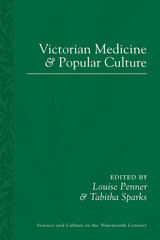
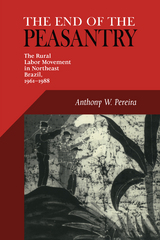
The rural labor movement played a surprisingly active role in Brazil’s transition to democracy in the 1980s. While in most Latin American countries rural labor was conspicuously marginal, in Brazil, an expanded, secularized, and centralized movement organized strikes, staged demonstrations for land reform, demanded political liberalization, and criticized the government’s environmental policies.
In this ground-breaking book, Anthony W. Pereira explains this transition as the result of two intertwined processes - the modernization of agricultural production and the expansion of the welfare state into the countryside - and explores the political consequences of these processes, occurring not only in Latin America but in much of the Third World.
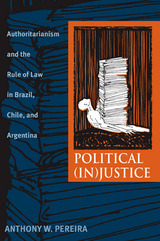
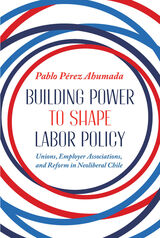


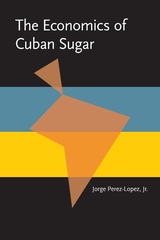
Pérez-López examines the various efforts at economic planning in the years following the Revolution and provides in-depth analysis of aspects particular to the sugar industry: cultivation, mechanization, energy and transportation, refining and the manufacture of sugar derivatives, production costs, and foreign trade.






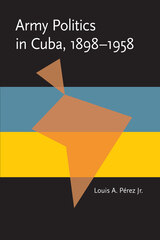
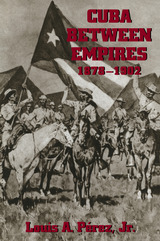
Cuban independence arrived formally on May 20, 1902, with the raising of the Cuban flag in Havana - a properly orchestrated and orderly inauguration of the new republic. But something had gone awry. Republican reality fell far short of the separatist ideal. In an unusually powerful book that will appeal to the general reader as well as to the specialist, Louis A. Perez, Jr., recounts the story of the critical years when Cuba won its independence from Spain only to fall in the American orbit.
The last quarter of the nineteenth century found Cuba enmeshed in a complicated colonial environment, tied to the declining Spanish empire yet economically dependent on the newly ascendant United States. Rebellion against Spain had involved two generations of Cubans in major but fruitless wars. By careful examination of the social and economic changes occurring in Cuba, and of the political content of the separatist movement, the author argues that the successful insurrection of 1895-98 was not simply the last of the New World rebellions against European colonialism. It was the first of a genre that would become increasingly familiar in the twentieth century: a guerrilla war of national liberation aspiring to the transformation of society.
The third player in the drama was the United States. For almost a century, the United States had pursuedthe acquistion of Cuba. Stepping in when Spain was defeated, the Americans occupied Cuba ostensibly to prepare it for independence but instead deliberately created institutions that restored the social hierarchy and guaranteed political and economic dependence. It was not the last time the U.S. intervention would thwart the Cuban revolutionary impulse.

This book examines the early years of the Cuban Republic, launched in 1902 after the war with Spain. Although no longer a colony, the country was still hobbled by continuing dependence on and exploitation from a foreign power. Pérez shows how U.S. armed intervention in Cuba in 1898 and subsequent military occupation revitalized elements of the colonial system that would serve imperialist interests during independence. The concessions of the Platt Amendment in 1903 became the principal instrument for U.S. expansion in Cuba. The U.S. then gained control over resources and markets.



Cuban Studies has been published annually by the University of Pittsburgh Press since 1985. Founded in 1970, it is the preeminent journal for scholarly work on Cuba. Each volume includes articles in both English and Spanish, a large book review section, and an exhaustive compilation of recent works in the field.
Widely praised for its interdisciplinary approach, and trenchant analysis of an array of topics, each volume features the best scholarship in the humanities and social sciences. Cuban Studies 36 includes articles on economics, politics, racial and gender issues, and the exodus of Cuban Jewry in the early 1960s, among others. Contributing authors are: Kenya C. Dworkin y Méndez, Beatriz Calvo Peña, Mary Speck, Luz Mena, Gema R. Guevara and Dana Evan Kaplan.

Cuban Studies has been published annually by the University of Pittsburgh Press since 1985. Founded in 1970, it is the preeminent journal for scholarly work on Cuba. Each volume includes articles in both English and Spanish, a large book review section, and an exhaustive compilation of recent works in the field.
Widely praised for its interdisciplinary approach and trenchant analysis of an array of topics, each volume features the best scholarship in the humanities and social sciences. Cuban Studies 37 includes articles on environmental law, economics, African influence in music, irreverent humor in postrevolutionary fiction, international education flow between the United States and Cuba, and poetry, among others.

Cuban Studies has been published annually by the University of Pittsburgh Press since 1985. Founded in 1970, it is the preeminent journal for scholarly work on Cuba. Each volume includes articles in both English and Spanish, a large book review section, and an exhaustive compilation of recent works in the field.
Widely praised for its interdisciplinary approach and trenchant analysis of an array of topics, each volume features the best scholarship in the humanities and social sciences. Cuban Studies 38 includes essays on the politics of liberation, including: the competing strands of liberalism emanating from Havana in the early nineteenth century; Jose Martí's theory of psychocoloniality; and the relationship between sugar planters, insurgents, and the Spanish military during the revolution. This volume also reflects on cultural themes, such as the new aesthetics of the everyday in Cuban cinema, the “recovery” of poet José Angel Buesa, and the meaning of Elián Gonzales in the context of life in Miami.

Cuban Studies 39 includes essays on: the recent transformation of the Cuban film animation industry and its continuing cultural impact; the influence of the liberal agenda of Justo Rufino Barrios on Jose Martí; a profile of the music of the Special Period and its social commentary; an in-depth examination of the contents, important themes, and enormous research potential of the Miscelánea de Expedientes collection at the Cuban National Archive; and a realistic assessment on the political future of Cuba.
Beginning with volume 34 (2003), the publication is available electronically through Project MUSE®. More information can be found at http://muse.jhu.edu/publishers/pitt_press/.

Cuban Studies 40 features a broad spectrum of articles, including essays on: the role of race in the revolution of 1933; the subject of disaster in eighteenth-century Cuban poetry; developments in Cuban historiography over the past fifty years; a profile of the work of historian José Vega Suñol; and a remembrance of essayist and literary critic Nara Araújo, who also contributed an article on travel in Cuba for this volume.
Beginning with Cuban Studies 34 (2003), the publication is available electronically through Project MUSE®. More information can be found at http://muse.jhu.edu/publishers/pitt_press/.
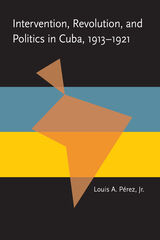
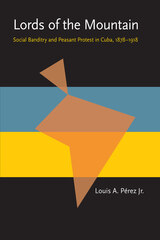
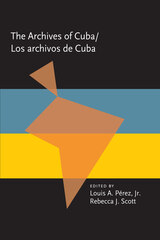
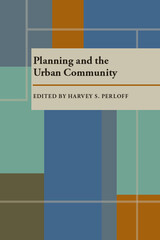
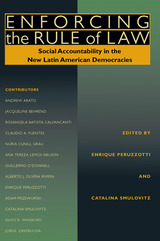
Reports of scandal and corruption have led to the downfall of numerous political leaders in Latin America in recent years. What conditions have developed that allow for the exposure of wrongdoing and the accountability of leaders? Enforcing the Rule of Law examines how elected officials in Latin American democracies have come under scrutiny from new forms of political control, and how these social accountability mechanisms have been successful in counteracting corruption and the limitations of established institutions.
This volume reveals how legal claims, media interventions, civic organizations, citizen committees, electoral observation panels, and other watchdog groups have become effective tools for monitoring political authorities. Their actions have been instrumental in exposing government crime, bringing new issues to the public agenda, and influencing or even reversing policy decisions.
Enforcing the Rule of Law presents compelling accounts of the emergence of civic action movements and their increasing political influence in Latin America, and sheds new light on the state of democracy in the region.

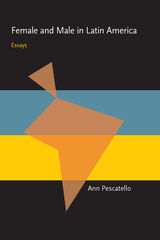
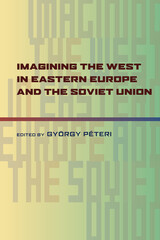
This volume presents work from an international group of writers who explore conceptualizations of what defined “East” and “West” in Eastern Europe, imperial Russia, and the Soviet Union. The contributors analyze the effects of transnational interactions on ideology, politics, and cultural production. They reveal that the roots of an East/West cultural divide were present many years prior to the rise of socialism and the cold war.
The chapters offer insights into the complex stages of adoption and rejection of Western ideals in areas such as architecture, travel writings, film, music, health care, consumer products, political propaganda, and human rights. They describe a process of mental mapping whereby individuals “captured and possessed” Western identity through cultural encounters and developed their own interpretations from these experiences. Despite these imaginaries, political and intellectual elites devised responses of resistance, defiance, and counterattack to defy Western impositions.
Socialists believed that their cultural forms and collectivist strategies offered morally and materially better lives for the masses and the true path to a modern society. Their sentiments toward the West, however, fluctuated between superiority and inferiority. But in material terms, Western products, industry, and technology, became the ever-present yardstick by which progress was measured. The contributors conclude that the commodification of the necessities of modern life and the rise of consumerism in the twentieth century made it impossible for communist states to meet the demands of their citizens. The West eventually won the battle of supply and demand, and thus the battle for cultural influence.

A long history of migration, trade, and shared interests links China to Latin America and the Caribbean. Over the past twenty years, China has increased direct investment and restructured trade relations in the region. In addition, Chinese public sector enterprises, private companies, and various branches of the central government have planned, developed, and built a large number of infrastructure projects in Latin America and the Caribbean, such as dams, roads, railways, energy grids, security systems, telecommunication networks, hospitals, and schools. These projects have had a profound impact on local environments and economies and help shape the lived experiences of individuals. Each chapter in this volume examines how the impact of these infrastructure projects varies in different countries, focusing on how they produce new forms of global connectivity between various sectors of the economy and the resulting economic and cultural links that permeate everyday life

Dale Peterson has compiled twenty-seven selections dating from 1436 through 1976. He prefaces each excerpt with biographical information about the writer. Peterson's running commentary explains the national differences in mental health care and the historical changes that have take place in symptoms and treatment. He traces the development of the private madhouse system in England and the state-run asylum system in the United States. Included is the first comprehensive bibliography of writings by the mentally ill.


Whether winning world championships or falling into last place, fielding teams with Hall of Fame players or trotting out bumbling boys of summer, the Pittsburgh Pirates have thrilled, frustrated, and fascinated generations of fans since 1876.
To date, the Pirates have won five World Series and have a total of thirty-six players and managers in the Hall of Fame-including Honus Wagner, Pie Traynor, Lloyd and Paul Waner, Ralph Kiner, Willie Stargell, Roberto Clemente, and Bill Mazeroski.
The Pirates Reader is a tribute to the fans, players, and teams who have forged the franchise's rich history. Richard Peterson has collected the writing of baseball's greatest storytellers and brings to life the players, games, and magical moments for this classic and well-loved team.

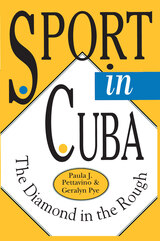
In spite of the obvious success and political importance of sport in Cuba, very little has been written on the subject. Sport in Cuba closes this gap. In the first major study on the Cuban system of sports and physical culture, Paula J. Pettvino and Geralyn Pye analyze how sports was given such a high priority in Cuba, how the country became a world power by the mid-1970s, and the impact of sports on Cuban society. Moving from the early days when the government's approach to sports was loosely defined, through the construction of a complex system of physical culture, to the current years of uncertainty, Sport in Cuba utilizes both archival sources and personal interviews. It will be of interest to Latin Americanists and students of sports.
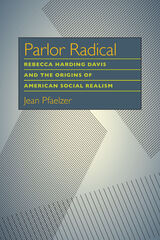
By engaging current strategies in literary hermeneutics with a strong sense of historical radicalism in the Gilded Age, Jean Pfaelzer reads Davis through the public issues that she forcefully inscribed in her fiction. In this study, Davis's realistic narratives actively construct a coherent social work, not in a fictional vacuum but in direct engagement with the explosive movements of social change from the Civil War through the turn of the century.

Rebecca Harding Davis was a prolific writer who published chiefly in popular periodicals over the latter half of the nineteenth century. In tales that combine realism with sentimentalism and in topical essays, Davis confronted a wide range of current issues—notably women’s problems—as one who knew the frustration caused by the genteel female’s helpless social position and barriers against women entering the working world. In an excellent critical introduction, Jean Pfaelzer integrates cultural, historical, and psychological approaches in penetrating readings of Davis’s work. She emphasizes how Davis’s fictional embrace of the commonplace was instrumental in the demise of American romanticism and in eroding the repressive cultural expectations for women.
In both fiction and nonfiction, Davis attacked contemporary questions such as slavery, prostitution, divorce, the Spanish-American War, the colonization of Africa, the plight of the rural South, northern racism, environmental pollution, and degraded work conditions generated by the rise of heavy industry. Written from the standpoint of a critical observer in the midst of things, Davis’s work vividly recreates the social and ideological ferment of the post-Civil War United States. The American literary canon is enriched by this collection, nearly all of which is reprinted for the first time.
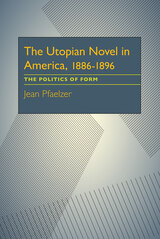
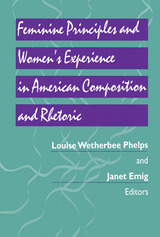
In this unique collection, the editors and authors examine, against a rich historical background, the complex contributions that women have made to composition and rhetoric in American education. Using varied and at times experimental modes of presentation to portray teachers and learners at work, including the very young and the elderly, the text provides a generous and fresh feminine perspective on the field.
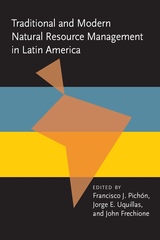
This book identifies a major problem facing developing nations and the countries and sources that fund them: the lack of attention and/or effective strategies available to prevent farmers in underdeveloped and poorly endowed regions from sinking still deeper into poverty while avoiding further degradation of marginal environments. The contributors propose an alliance of scientific knowledge with native skill as the best way to proceed, arguing that folk systems can often provide effective management solutions that are not only locally effective, but which may have the potential for spatial diffusion. While this has been said before, the volume makes one of the best articulated statements of how to implement such an approach.

With an Introduction by Timothy Snyder
Polish journalist Pawel Pieniazek was among the first journalists to enter the war-torn region of eastern Ukraine and Greetings from Novorossiya is his vivid firsthand account of the conflict. He was the first reporter to reach the scene when Russian troops in Ukraine accidentally shot down a civilian airliner, killing all 298 people aboard. Unlike Western journalists, his fluency in both Ukrainian and Russian granted him access and the ability to move among all sides in the conflict. With powerful color photos, telling interviews from the local population, and brilliant reportage, Pieniazek’s account documents these dramatic events as they transpired.
This unique firsthand view of history in the making brings to life the tragedy of Ukraine for a Western audience. Historian Timothy Snyder provides wider context in his superb introduction and explores the significance of this ongoing conflict at the border of East and West.
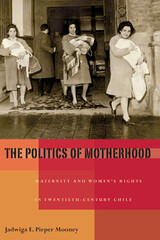
Chronicling an era of unprecedented modernization and political transformation, Jadwiga E. Pieper Mooney examines the negotiations over women's rights and the politics of gender in Chile throughout the twentieth century. Centering her study on motherhood, Pieper Mooney explores dramatic changes in health policy, population paradigms, and understandings of human rights, and reveals that motherhood is hardly a private matter defined only by individual women or couples. Instead, it is intimately tied to public policies and political competitions on nation-state and international levels.
The increased legitimacy of women's demands for rights, both locally and globally, has led to some improvements in gender equity. Yet feminists in contemporary Chile continue to face strong opposition from neoconservatism in the Catholic Church and a mixture of public apathy and legal wrangling over reproductive rights and health.

News is “one of the few things that connects us as a nation” observes the protagonist in the title story of Newsworld, a new collection by Todd James Pierce that explores America’s obsession with news and entertainment culture. The characters in “Newsworld” seek to design realistic theme park attractions, such “OJ’s Bronco: The Ride” and “Seige at Waco,” that allow park guests to experience the complexities of contemporary news events for themselves. In the story “Columbine: The Musical,” high school students stage a musical written as a means of discussing school violence, while their vice principal wrangles a 10 percent discount on a school security system in exchange for corporate sponsorship of the play. In “Wrestling Al Gore,” a national wrestling federation uses costumed wrestlers to cast the Gore/Bush election recount into the ring. In an ironic twist, fans become sympathetic to the underdog Gore, champion his cause, and ultimately reflect on the fate of the real politician. In “The Yoshi Compound: A Story of Post-Waco Texas,” the followers of the Dalai Yoshi amass weapons and riot gear in hopes of attracting media attention in order to spread their message of love and world peace.
The characters in Newsworld, like many Americans, are engulfed in a life-imitating-art phenomenon caused by the hyperreality presented in the media, and they struggle with this overwhelming influence trying to understand whether their own lives fall within or outside its domain.

Selected by Jill McCorkle
This Angel on My Chest is a collection of unconventionally linked stories, each about a different young woman whose husband dies suddenly and unexpectedly. Ranging from traditional stories to lists, a quiz, a YouTube link, and even a lecture about creative writing, the stories grasp to put into words the ways in which we all cope with unspeakable loss.
Based on the author’s own experience of losing her husband at age thirty-seven, this book explores the resulting grief, fury, and bewilderment, mirroring the obsessive nature of grieving. The stories examine the universal issues we face at a time of loss, as well as the specific concerns of a young widow: support groups, in-laws, insurance money, dating, and remarriage. This Angel on My Chest ultimately asks, how is it possible to move forward with life while “till death do you part” rings in your ears—and, how is it possible not to?
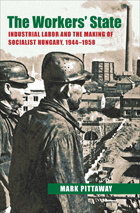
In The Workers’ State, Mark Pittaway presents a groundbreaking study of the complexities of the Hungarian working class, its relationship to the Communist Party, and its major political role during the foundational period of socialism (1944–1958). Through case studies of three industrial centers—Újpest, Tatabánya, and Zala County—Pittaway analyzes the dynamics of gender, class, generation, skill level, and rural versus urban location, to reveal the embedded hierarchies within Hungarian labor. He further demonstrates how industries themselves, from oil and mining to armaments and textiles, possessed their own unique labor subcultures.
From the outset, the socialist state won favor with many workers, as they had grown weary of the disparity and oppression of class systems under fascism. By the early 1950s, however, a gap between the aspirations of labor and the goals of the state began to widen. In the Stalinist drive toward industrialization, stepped up production measures, shortages of goods and housing, wage and benefit cuts, and suppression became widespread.
Many histories of this period have focused on Communist terror tactics and the brutal suppression of a pliant population. In contrast, Pittaway’s social chronicle sheds new light on working-class structures and the determination of labor to pursue its own interests and affect change in the face of oppression. It also offers new understandings of the role of labor and the importance of local histories in Eastern Europe under communism.
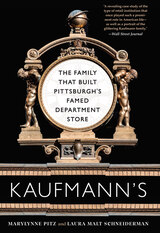
In 1868, Jacob Kaufmann, the nineteen-year-old son of a German farmer, stepped off a ship onto the shores of New York. His brother Isaac soon followed, and together they joined an immigrant community of German Jews selling sewing items to the coal miners and mill workers of western Pennsylvania. After opening merchant tailor shops in Pittsburgh’s North and South sides, the Kaufmann brothers caught the wave of a new type of merchandising—the department store—and launched what would become their retail dynasty with a downtown storefront at Fifth Avenue and Smithfield Street. In just two decades, Jacob and his brothers had ascended Pittsburgh’s economic and social ladder, rising from hardscrabble salesmen into Gilded Age multimillionaires.
Generous and powerful philanthropists, the Kaufmanns left an indelible mark on the city and western Pennsylvania. From Edgar and Liliane’s famous residence, the Frank Lloyd Wright masterpiece called Fallingwater, to the Kaufmann clock, a historic landmark that inspired the expression “meet me under the clock,” to countless fond memories for residents and shoppers, the Kaufmann family made important contributions to art, architecture, and culture. Far less known are the personal tragedies and fateful ambitions that forever shaped this family, their business, and the place they called home. Kaufmann’s recounts the story of one of Pittsburgh’s most beloved department stores, pulling back the curtain to reveal the hardships, triumphs, and complicated legacy of the prominent family behind its success.
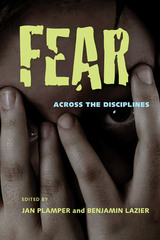
Individual chapters treat manifestations of fear in the mass panic of the stock market crash of 1929, as spectacle in warfare and in horror films, and as a political tool to justify security measures in the wake of terrorist acts. They also describe the biological and evolutionary roots of fear, fear as innate versus learned behavior in both humans and animals, and conceptions of human “passions” and their self-mastery from late antiquity to the early modern era. Additionally, the contributors examine theories of intentional and non-intentional reactivity, the process of fear-memory coding, and contemporary psychology’s emphasis on anxiety disorders.
Overall, the authors point to fear as a dense and variable web of responses to external and internal stimuli. Our thinking about these reactions is just as complex. In response, this volume opens a dialogue between science and the humanities to afford a more complete view of an emotion that has shaped human behavior since time immemorial.
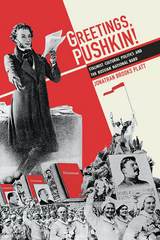
Jonathan Brooks Platt looks deeply into the motivations behind the Soviet glorification of a long-dead poet—seemingly at odds with the October Revolution’s radical break with the past. He views the Pushkin celebration as a conjunction of two opposing approaches to time and modernity: monumentalism, which points to specific moments and individuals as the origin point for cultural narratives, and eschatology, which glorifies ruptures in the chain of art or thought and the destruction of canons.
In the midst of the Great Purge, the Pushkin jubilee was a critical element in the drive toward a nationalist discourse that attempted to unify and subsume the disparate elements of the Soviet Union, supporting the move to “socialism in one country.”
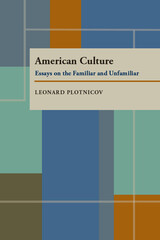
American Culture comprises fifteen essays looking at the familiar and the less familiar in American society: urbanites in Pittsburgh and Indianapolis, rural communities in the American West, Hispanics in Wisconsin, Samoans in California, the Amish, and the utopian religious communities of the Shakers and Oneida. The essays address a wide range of topics and a spectrum of occupations-miners, whalers, farmers, factory workers, physicians and nurses-to consider such questions as why some religious sects remain distinctive, separate, and viable; how groups use of such things as nicknames and family reunions to maintain ties within the community; how immigrant communities organize to sustain traditional cultural activities.
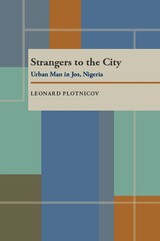
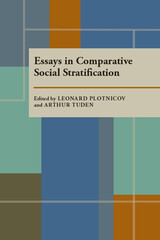
The essays in this volume represent trends in social stratification studies undertaken in major culture areas of the world. The empirical data of the chapters are set with special reference to the dynamics of processes within these diverse traditions and heritages as sources of comparison with one another and with the experiences of western societies.
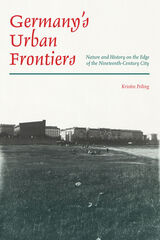

Polit Dueñas provides a theoretical basis for her methods, citing the work of Walter Benjamin, Pierre Bourdieu, and other cultural analysts. She supplements this with extensive ethnographic fieldwork, interviewing artists and writers, their confidants, relatives, and others, and documents their responses to the portrayal of narco culture. Polit Dueñas offers close readings of the characters, language, and milieu of popular works of literature and the visual arts and relates their ethical and thematic undercurrents to real life experiences. In both regions, there are few individuals who have not been personally affected by the narcotics trade. Each region has witnessed corrupt state, police, and paramilitary actors in league with drug capos. Both have a legacy of murder.
Polit Dueñas documents how narco culture developed at different times historically in the two regions. In Mexico, drugs have been cultivated and trafficked for over a century, while in Colombia the cocaine trade is a relatively recent development. In Culiacán, characters in narco narratives are often modeled after the serrano (highlander), a romanticized historic figure and sometime thief who nobly defied a corrupt state and its laws. In Medellín, the oft-portrayed sicario (assassin) is a recent creation, an individual recruited by drug lords from poverty stricken shantytowns who would have little economic opportunity otherwise. As Polit Dueñas shows, each character occupies a different place in the psyche of the local populace.
Narrating Narcos offers a unique melding of archival and ground-level research combined with textual analysis. Here, the relationship of writer, subject, and audience becomes clearly evident, and our understanding of the cultural bonds of Latin American drug trafficking is greatly enhanced. As such, this book will be an important resource for students and scholars of Latin American literature, history, culture, and contemporary issues.


Amid the din of Russia’s patriotic sentiments and Instagram instants, is there any room left for the voice of a poet? Despite the many entertainments and distractions of modern life, Anzhelina Polonskaya’s spare but cutting poems in Take Me to Stavanger declare a wholehearted “Yes.” This bilingual Russian-English volume makes a refuge for the poet and her readers, plumbing the depths of contemporary melancholy and ennui. Beautifully crafted idiosyncratic dissections of a strong individual who refuses to go along with the currents of popular culture or political jingoism invite readers to slow down and pay attention.
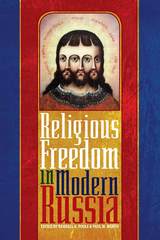
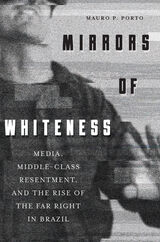

Belarus is widely regarded as the most authoritarian state in the region, while Ukraine is witnessing a slow, if often troubled, democratic consolidation. Each state presents a different set of challenges to outside agencies. As Pospieszna shows, Poland is uniquely positioned to offer effective counsel on the transition to democracy. With similarities of language and culture, and a shared history, combined with strong civic activism and success within the European Union, Poland’s regional policies have successfully combined its need for security and a motivation to spread democracy as primary concerns. Pospieszna details the founding, internal workings, goals, and methods of Poland’s aid programs. She then compares the relative degrees of success of each in Belarus and Ukraine and documents the work yet to be done.
As her theoretical basis, Pospieszna analyzes current thinking on the methods and effectiveness of NGOs in transitions to democracy, particularly U.S.- and European-led aid efforts. She then views the applicability of these methods to the case of Poland and its aid recipients. Overwhelmingly, Pospieszna finds the greatest success in developmental programs targeting civil society—workers, intellectuals, teachers, students, and other NGO actors.
Through extensive interviews with government administrators and NGO workers in Poland and the United States, coupled with archival research, Pospieszna assembles an original perspective on the mitigation of the ‘postcommunist divide’. Her work will serve as a model for students and scholars of states in transition, and it provides an overview of both successful and unsuccessful strategies employed by NGOs in democracy assistance.
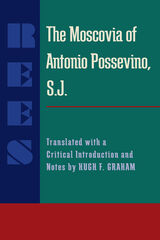
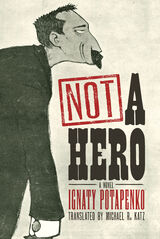
Between 1890 and 1893, Ignaty Potapenko published a number of works in which he presented the Russian intelligentsia with a new role model, the “mediocre, but common-sensical man,” whose diligence and steady devotion to the improvement of society are depicted as being more productive than the reckless heroism of the regime’s most outspoken, and sometimes violent, intellectual opponents. Not a Hero introduces the twenty-first-century reader to an important debate of the prerevolutionary period, a debate that is still relevant today: how to bring about social change within an oppressive and ossified political system without resorting to violence.
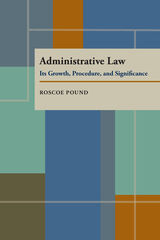
Roscoe Pound (1870-1964) taught at Harvard from 1910 until 1947, serving as dean of the Harvard Law School from 1916 to 1936. He is acknowledged as the founder of sociological jurisprudence—an interdisciplinary approach to legal concepts in which the law is recognized as a dynamic system that is influenced by social conditions and that, in turn, influences society as a whole. Pound's five-volume Jurisprudence is among the most comprehensive of twentieth-century legal works. His lectures draw direct connections between the abstract fundamentals of philosophy, using the works of Kant, Hegel, Spencer, Comte, and others, and the trends and problems of legal principles and rules.
This book includes topics of: “The Place of Administration in the Legal Order”; “The Rise of Administrative Justice”; “Administrative Procedure”; “The Future of Judicial Justice”; and “Substitutes for Law”
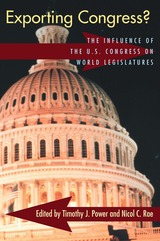
The United States Congress is often viewed as the world's most powerful national legislature. To what extent does it serve as a model for other legislative assemblies around the globe? In Exporting Congress? distinguished scholars of comparative legislatures analyze how Congress has influenced elected assemblies in both advanced and transitional democracies. They reveal the barriers to legislative diffusion, the conditions that favor Congress as a model, and the rival institutional influences on legislative development around the world.
Exporting Congress? examines the conditions for the diffusion, selective imitation, and contingent utility of congressional institutions and practices in Canada, the United Kingdom, Germany, the European Parliament, and the new democracies in Latin America and Eastern Europe. These scholars find that diffusion is highly sensitive to history, geography, and other contextual factors, especially the structure of political institutions and the balance of power between the executive and legislative branches. Editors Timothy Power and Nicol Rae place the volume's empirical findings in theoretical, comparative, and historical perspective, and establish a dialogue between the separate subfields of congressional studies and comparative legislatures through the concept of legislative diffusion.
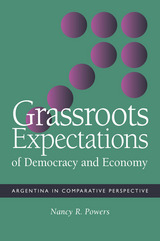
This highly readable study addresses a range of fundamental questions about the interaction of politics and economics, from a grassroots perspective in post-transition Argentina. Nancy R. Powers looks at the lives and political views of Argentines of little to modest means to examine systematically how their political interests, and their evaluations of democracy, are formed. Based on the author’s fieldwork in Argentina, the analysis extends to countries of Latin America and Eastern Europe facing similarly difficult political and economic changes.
Powers uses in-depth interviews to examine how (not simply what) ordinary people think about their standard of living, their government, and the democratic regime. She explains why they sometimes do, but more often do not, see their material conditions as political problems, arguing that the type of hardship and the possibilities for coping with it are more politically significant than the degree of hardship. She analyzes alternative ways in which people define democracy and judge its legitimacy.
Not only does Powers demonstrate contradictions and gaps in the existing scholarship on economic voting, social movements, and populism, she also shows how those literatures are addressing similar questions but are failing to “talk” to one another. Powers goes on to build a more comprehensive theory of how people at the grassroots form their political interests. To analyze why people perceive only some of their material hardships as political problems, she brings into the study of politics ideas drawn from Amartya Sen and other scholars of poverty.
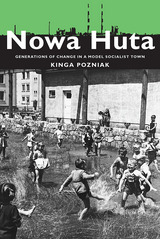
Kinga Pozniak shows how the remarkable political, economic, and social upheavals since the end of the Second World War have profoundly shaped the historical memory of these events in the minds of the people who lived through them. Through extensive interviews, she finds three distinct, generationally based framings of the past. Those who built the town recall the might of local industry and plentiful jobs. The following generation experienced the uprisings of the 1980s and remembers the repression and dysfunction of the socialist system and their resistance to it. Today’s generation has no direct experience with either socialism or Solidarity, yet as residents of Nowa Huta they suffer the stigma of lower-class stereotyping and marginalization from other Poles.
Pozniak examines the factors that lead to the rewriting of history and the formation of memory, and the use of history to sustain current political and economic agendas. She finds that despite attempts to create a single, hegemonic vision of the past and a path for the future, these discourses are always contested—a dynamic that, for the residents of Nowa Huta, allows them to adapt as their personal experience tells them.

This first full-scale treatment of the early prose of Dylan Thomas demonstrates the unity of his total work. Pratt argues that the inward journey of the poetic imagination which is implicit in poetry is often explicit in prose. Her study of Thomas’ early prose alongside his early poetry helps to elucidate all of his writing.
Pratt includes three appendices: a chronology, a summary of the critics’ attitudes toward the problem of influence, and a bibliographical sketch of materials in the Parris surrealist magazine transition, which are paralleled in Thomas’ prose.

With case studies from the United States, Canada, Mexico, Norway, Africa, and Australia, this volume views a range of older and more recent energy capitals, contrasts their evolutions, and explores why some capitals were able to influence global trends in energy production and distribution while others failed to control even their own destinies. Chapters show how local and national politics, social structures, technological advantages, education systems, capital, infrastructure, labor force, supply and demand, and other factors have affected the ability of a region to develop and control its own fossil fuel reserves. The contributors also view the environmental impact of energy industries and demonstrate how, in the depletion of reserves or a shift to new energy sources, regions have or have not been able to recover economically.
The cities of Tampico, Mexico, and Port Gentil, Gabon, have seen their oil deposits exploited by international companies with little or nothing to show in return and at a high cost environmentally. At the opposite extreme, Houston, Texas, has witnessed great economic gain from its oil, natural gas, and petrochemical industries. Its growth, however, has been tempered by the immense strain on infrastructure and the human transformation of the natural environment. In another scenario, Perth, Australia, Calgary, Alberta, and Stavanger, Norway have benefitted as the closest established cities with administrative and financial assets for energy production that was developed hundreds of miles away.
Whether coal, oil, or natural gas, the essays offer important lessons learned over time and future considerations for the best ways to capture the benefits of energy development while limiting the cost to local populations and environments.
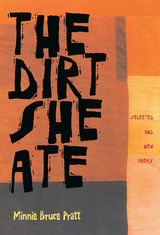

In Pratt's fourth volume of poems, Walking Back Up Depot Street, we are led by powerful images into what is both a story of the segregated rural South and the story of a white woman named Beatrice who is leaving that home for the postindustrial North. Beatrice searches for the truth behind the public story-the official history-of the land of her childhood. She struggles to free herself from the lies she was taught while growing up-and she finds the other people who are also on this journey.
In these dramatically multivocal narrative poems, we hear the words and rhythms of Bible Belt preachers, African-American blues and hillbilly gospel singers, and sharecropper country women and urban lesbians. We hear the testimony of freed slaves and white abolitionists speaking against Klan violence, fragments of speeches by union organizers and mill workers, and snatches of songs from those who marched on the road to Selma. Beatrice walks back into the past and finds the history of resistance that she has never been taught; she listens to her fellow travelers as they all get ready to create the future.
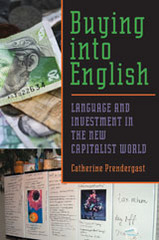
Many developing countries have little choice but to “buy into English” as a path to ideological and material betterment.
Based on extensive fieldwork in Slovakia, Prendergast assembles a rich ethnographic study that records the thoughts, aspirations, and concerns of Slovak nationals, language instructors, journalists, and textbook authors who contend with the increasing importance of English to their rapidly evolving world. She reveals how the use of English in everyday life has becomes suffused with the terms of the knowledge and information economy, where language is manipulated for power and profit.
Buying into English presents an astute analysis of the factors that have made English so prominent and yet so elusive, and a deconstruction of the myth of guaranteed viability for new states and economies through English.
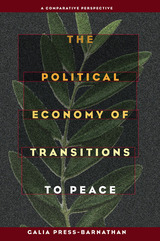
Much attention has focused on the ongoing role of economics in the prevention of armed conflict and the deterioration of relations. In The Political Economy of Transitions to Peace, Galia Press-Barnathan focuses on the importance of economics in initiating and sustaining peaceful relations after conflict.
Press-Barnathan provides in-depth case studies of several key relationships in the post-World War II era: Israel and Egypt; Israel and Jordan; Japan, the Philippines, and Indonesia; Japan and South Korea; Germany and France; and Germany and Poland. She creates an analytical framework through which to view each of these cases based on three factors: the domestic balance between winners and losers from transition to peace; the economic disparity between former enemies; and the impact of third parties on stimulating new cooperative economic initiatives. Her approach provides both a regional and cross-regional comparative analysis of the degree of success in maintaining and advancing peace, of the challenges faced by many nations in negotiating peace after conflict, and of the unique role of economic factors in this highly political process.
Press-Barnathan employs both liberal and realist theory to examine the motivations of these states and the societies they represent. She also weighs their power relations to see how these factor into economic interdependence and the peace process. She reveals the predominant role of the state and big business in the initial transition phase (“cold” peace), but also identifies an equally vital need for a subsequent broader societal coalition in the second, normalizing phase (“warm” peace). Both levels of engagement, Press-Barnathan argues, are essential to a durable peace. Finally, she points to the complex role that third parties can play in these transitions, and the limited long-term impact of direct economic side-payments to the parties.
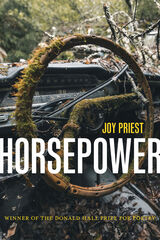
FROM "RODEO"
The four-wheeler is a chariot. Horse-wraiths
Kicking up a plume of spirits in the dirt behind us.
Her arms kudzu around my middle. Out here,
In the desert, everything is invisible.
Only the locusts’ flat buzz gives
Them away. Everything native & quieting
Perennial & nighthawk black
As we ride through: the cowgirls,
The witch & the water sky-mirror-split,
The severity of squall lines. Also, the lips
Parting air like lightning & the girl
Blowing bubbles—in each one
a rainbow.

In Architecture, Politics, and Identity in Divided Berlin Emily Pugh provides an original comparative analysis of selected works of architecture and urban planning in both halves of Berlin during the Wall era, revealing the importance of these structures to the formation of political, cultural, and social identities. Pugh uncovers the roles played by organizations such as the Foundation for Prussian Cultural Heritage and the Building Academy in conveying the political narrative of their respective states through constructed spaces. She also provides an overview of earlier notable architectural works, to show the precursors for design aesthetics in Berlin at large, and considers projects in the post-Wall period, to demonstrate the ongoing effects of the Cold War.
Overall, Pugh offers a compelling case study of a divided city poised between powerful contending political and ideological forces, and she highlights the effort expended by each side to influence public opinion in Europe and around the World through the manipulation of the built environment.

In this imaginative and provocative book, Purdy draws upon the work of a such writers as Kurt Vonnegut, Vladimir Nabokov, Alain Robbe-Grillet, Günter Grass, Samuel Becket, and Eugene Ionesco to suggest ways in which novelists explore the unknown. His ingenious consideration of Henry James in conjunction with these novelists, as well as with science fiction and detective fiction writers and with mid-century scientific discoveries and advances—black holes, hydrogen bombs, space travel—offers rich, new insights into James’s work and into the twentieth-century view of humanity’s place in the world.
READERS
Browse our collection.
PUBLISHERS
See BiblioVault's publisher services.
STUDENT SERVICES
Files for college accessibility offices.
UChicago Accessibility Resources
home | accessibility | search | about | contact us
BiblioVault ® 2001 - 2024
The University of Chicago Press









